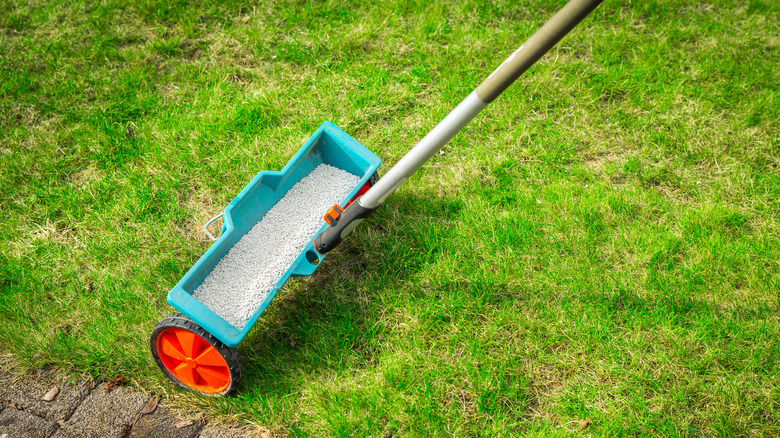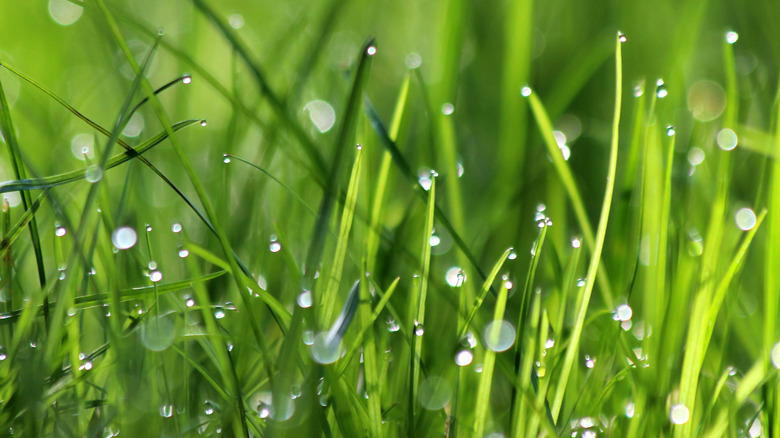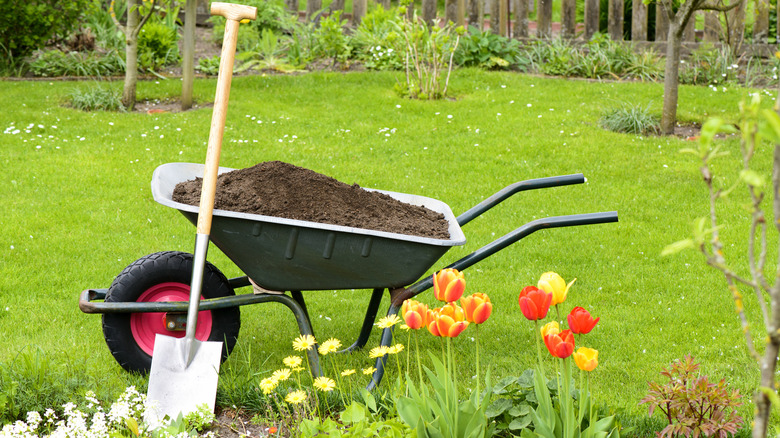Can You Add Fertilizer To Wet Grass?
You had plans to fertilize the lawn today, but then it rained. The grass is saturated, but your time is limited. Before you add fertilizer to wet grass, realize that the money and time you spend doing so may not be worth the outcome. That's because wet grass is already saturated, so it's unlikely to absorb the nutrients you're trying to provide. While you can apply fertilizer now, as it won't do any harm, it's likely to be far less effective than if you wait a bit. Knowing when to fertilize a lawn is critical.
Applying a foliar fertilizer to wet grass is not advisable since it can cause nutrient burn, also known as fertilizer burn. This type of fertilizer is applied directly to the leaves. Fertilizers often contain salts, which pull out some of the moisture from the grass. When too much fertilizer remains on the surface for too long, that can cause damage to the root system due to that moisture removal. You'll know this is happening when you see patches of yellowed or dead grass in areas where you've applied fertilizer. Since granular fertilizer cannot be absorbed fast enough on wet grass, this creates the ideal scenario for nutrient burn to occur. If you can wait it out before applying the fertilizer, do so.
There are more reasons not to fertilize wet grass
When fertilizer cannot penetrate the soil to support the needs of the grass, it ends up going somewhere. That often means it's more likely to run off and pollute streams, ponds, and other bodies of water in the area. More so, if it continues to rain in the coming days, that fertilizer is just washed away, leaving you with grass that hasn't benefited from the nutrients in any way.
Also notable is that it's much harder to evenly fertilize wet grass. Some areas may see a significant buildup of fertilizer due to the rainwater moving it. Other areas may not get any fertilizer due to the same reason. It's far more difficult to control where the fertilizer goes since it is quite mobile when wet.
That leads to the potential to overfeed the lawn. If that last application of fertilizer on wet grass washes away, then you apply another one to support the needs of your grass, and you could be overfeeding it. Too much of a good thing isn't ideal here. Your lawn needs nutrients to grow, but overfeeding it just makes it harder to manage, builds up chemicals in the grass and groundwater, and may mean you'll be cutting it more often.
When you should fertilize
If you've conducted a soil test and determined that you need to supplement the grass's nutrition, there are several things to keep in mind before you get the fertilizer out. After a good rain, check the grass. If there are areas where the grass is soggy and water isn't penetrating into the soil, that's a good sign it's oversaturated. Wait until it's dried out before applying fertilizer to it. Check the forecast, too. If there's rain in the coming days, skip the fertilizer until the water dries or penetrates into the soil. It may take a couple of days to dry out, depending on the conditions in your area.
When possible, avoid the use of chemical-based fertilizers and instead opt for an organic product. Natural fertilizers for the lawn can offer numerous advantages. These are less likely to contaminate waterbodies or cause overfeeding of your lawn. If you really want to support your lawn's growth and it's been a wet season, leave the grass clippings on the lawn and consider applying kelp or compost to the lawn instead. This will not only provide the nutrition needed, but it could also help to support the moisture buildup that can occur when the soil is lacking. You don't need a lot of these products to make a difference in the soil quality.


